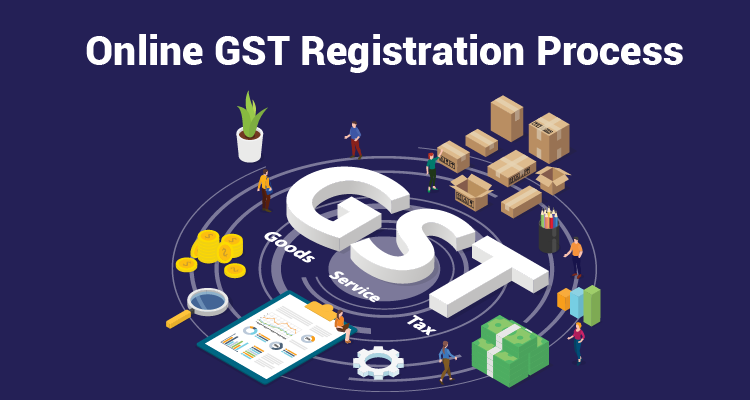The Ultimate Overview to Simplifying the GST Enrollment Refine and Requirements for Small Organization Owners

Recognizing GST Basics
To comprehend the fundamentals of the Goods and Provider Tax (GST) system, local business proprietors should initially understand its underlying principles and effects. GST is a value-added tax obligation levied on most products and services for residential usage. It aims to streamline the taxation procedure by replacing numerous indirect taxes enforced by the state and central federal governments. Under the GST routine, organizations are needed to register and gather tax in behalf of the federal government, ensuring openness and compliance.
One of the vital principles of GST is input tax credit, which allows businesses to assert credit scores for tax obligations paid on their purchases. This system prevents the cascading impact of taxes and promotes effectiveness in the tax obligation system. In addition, GST is a destination-based tax, meaning that the tax is imposed at the point of intake rather than the point of beginning. This ensures fair circulation of tax obligation revenue among states based upon where the solutions or items are eaten. Understanding these fundamental concepts is important for local business owners to browse the intricacies of the GST system and guarantee compliance with the regulation.
Qualification Standards for Enrollment
Having developed a foundational understanding of GST concepts, local business proprietors need to now fulfill details eligibility criteria to proceed with the registration procedure. In India, entities took part in the supply of products or solutions with an annual accumulation turn over going beyond Rs. 40 lakhs (Rs. 10 lakhs for unique group states) are called for to sign up for GST. Furthermore, certain services such as those involved in inter-state supply of products, casual taxable individuals, and those required to pay tax obligation under the reverse fee system have to register for GST regardless of their turnover. Moreover, businesses that were signed up under the previous tax obligation routine (BARREL, service tax obligation, and so on) are also mandated to sign up under GST. Agricultural organizations that just supply produce out of main production are excluded from GST registration. It is essential for local business owner to very carefully assess their qualification based on these requirements to make sure conformity with the legislation and avoid any penalties for non-compliance.
Records Needed for GST Registration

Simplified Enrollment Refine Actions
Tips for Ensuring Compliance
To keep regulative adherence and operational stability, persistent oversight and aggressive procedures are crucial in making certain conformity with GST needs for small company owners. Small company proprietors should remain upgraded with GST policies, filing deadlines, and any changes in tax rates to avoid fines and keep a good standing with tax obligation authorities. One Full Report crucial idea for conformity is to maintain exact and comprehensive records of all transactions, consisting of expenses, invoices, and receipts related to GST. Regularly reconciling economic records with GST returns can aid in identifying and remedying any inconsistencies quickly. Additionally, performing routine inner audits or looking for expert help can guarantee that business is adhering to all GST regulations properly. It is likewise essential for little service owners to buy GST-compliant accounting software program that can streamline the tax declaring procedure and decrease mistakes. Participating in GST understanding workshops or training programs can improve understanding and conformity with GST policies, eventually benefiting the organization in the lengthy run.
Conclusion
In verdict, tiny company proprietors need to understand the fundamentals of GST, meet the eligibility criteria, collect necessary papers, and adhere to the simplified registration procedure steps to ensure conformity. By simplifying the GST registration procedure and needs, local business proprietors can prevent penalties and run their organizations efficiently within the legal structure - Singapore GST Registration. It is vital for small company owners to stay compliant and informed with GST laws to preserve a successful company procedure
Small business owners looking for GST registration should ensure they gather and submit the needed files to complete the registration procedure efficiently. The papers needed for GST enrollment generally consist of proof of company registration or incorporation, FRYING PAN (Long-term Account Number) card of the business address, entity and identity evidence of the promoters/partners/directors, pictures, address proof of the place of organization, financial institution account statements or terminated cheques, and authorization forms. Going to GST recognition workshops or training programs can enhance understanding and compliance with GST policies, eventually profiting the service in the lengthy run.
By simplifying the GST enrollment process and needs, tiny business owners can stay clear of fines and operate their businesses smoothly within the lawful framework. It is crucial for small business proprietors to remain compliant and enlightened with GST policies to keep a successful service operation.
Comments on “Why Singapore GST Registration is Critical for Your Startup”